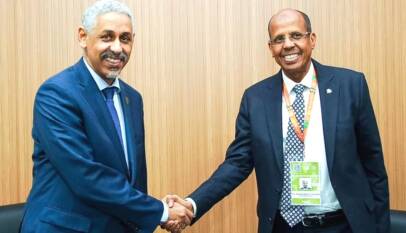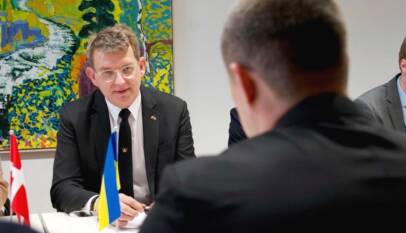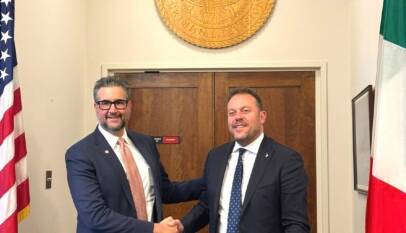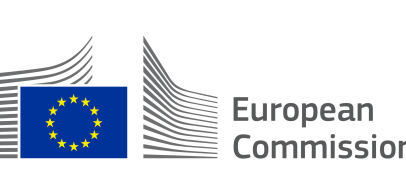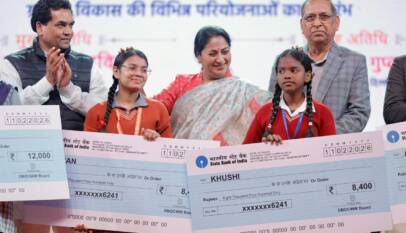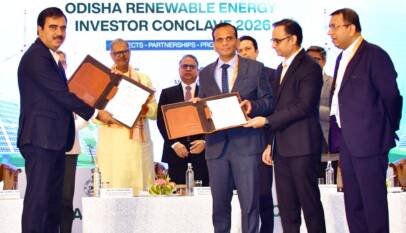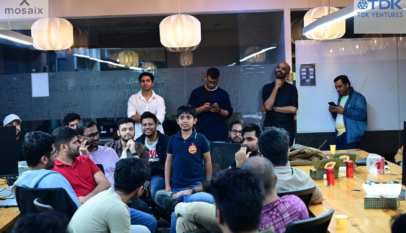Anura Dissanayake Sworn in as Sri Lanka’s 9th President, Signaling Major Political Shift
Colombo : Anura Dissanayake, leader of the Marxist Janatha Vimukthi Peramuna (JVP) party, was sworn in as Sri Lanka’s ninth president in a historic moment for the nation. The 55-year-old, also known as AKD, took the oath at the Presidential Secretariat in Colombo, with Chief Justice Jayantha Jayasuriya administering the ceremony. Dissanayake’s victory marks Sri Lanka’s first leftist head of state, bringing new promises and challenges to the country’s political landscape.
Dissanayake’s election followed Sri Lanka’s first-ever presidential run-off, held after neither he nor opposition leader Sajith Premadasa secured the required percentage of votes. Dissanayake ultimately won with 42.31% of the vote, while Premadasa garnered 32.76%. Incumbent President Ranil Wickremesinghe, who came in third, was eliminated after the first round.
“This victory belongs to all of us,” Dissanayake said in a statement on social media platform X after the results were announced. “The dream we have nurtured for centuries is finally coming true, thanks to the collective efforts of hundreds of thousands of people.”
Dissanayake’s presidency represents a significant political shift, as he assumes office amid promises to fight corruption, lower taxes, and renegotiate a $3 billion loan with the International Monetary Fund (IMF). His election, however, raises concerns among some, as the JVP—his party—was responsible for two armed uprisings in the 1970s and 1980s that claimed over 60,000 lives.
Despite his leftist background, Dissanayake expressed a commitment to uniting the nation and rebuilding Sri Lanka’s economy, which has been severely impacted by recent crises. His first major challenge will be stabilizing the country’s finances and fulfilling the promises he made during his campaign. In his post-inauguration statement, he promised to lead Sri Lanka into a “new era of renaissance.”
Indian Prime Minister Narendra Modi was one of the first foreign leaders to congratulate Dissanayake, expressing his commitment to strengthening ties between India and Sri Lanka. “I look forward to working closely with you to further our multifaceted cooperation for the benefit of both our peoples and the region,” Modi posted on X. Dissanayake thanked Modi, underscoring his willingness to deepen bilateral relations.
Sri Lanka’s Election Commission announced Dissanayake’s win on Sunday evening, which sparked immediate responses both domestically and internationally. One of his first tasks will be appointing an interim government, following the resignation of Prime Minister Dinesh Gunawardena, who stepped down ahead of the inauguration. However, Dissanayake’s coalition, the National People’s Power (NPP), holds only three seats in Sri Lanka’s 225-member parliament, posing significant hurdles for him until fresh parliamentary elections are held.
Dissanayake succeeds Ranil Wickremesinghe, who took office during the height of Sri Lanka’s economic crisis in 2022, following mass protests that ousted Gotabaya Rajapaksa from the presidency. His win is seen as a call for change in Sri Lanka, as the country continues to face economic instability, political reforms, and public dissatisfaction.
Big Boost for Workers and Villages: Education Support for 15,000 Children, Development Projects Worth ₹134 Crore Launched
“Those who build Delhi deserve our respect,” says CM Rekha Gupta; ₹12.40 crore released Fo…


